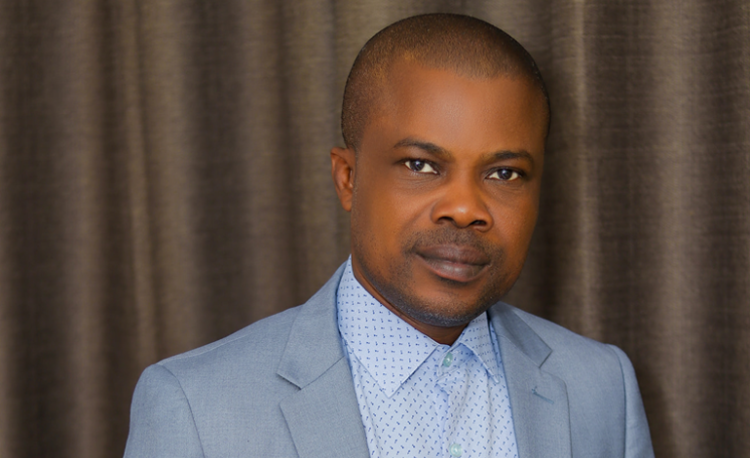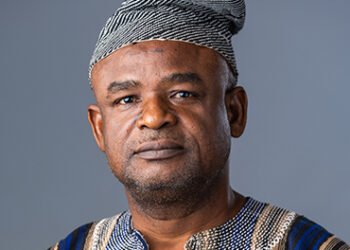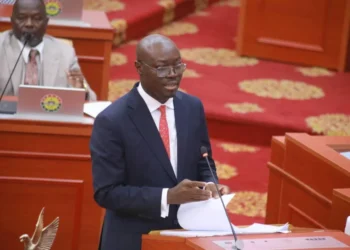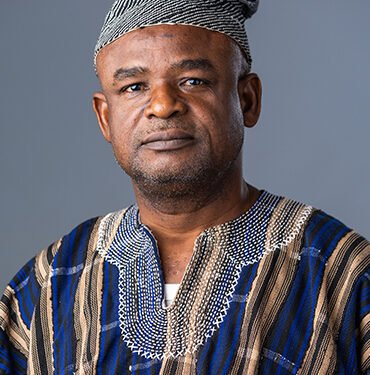A seasoned Security Consultant, Richard Kumadoe, has offered a layered and cautious assessment of Ghana’s ongoing efforts to combat criminal activities, arguing that the changes in law enforcement approaches in recent times are shaped by three main factors: leadership style, national focus, and the dominant force.
In an interview with the Vaultz News, Mr Kumadoe pointed out that while there have been noticeable strides, long-term success depends on sustained commitment, strategic leadership, and the political will to prosecute offenders.
From his vantage point, Mr Kumadoe noted that it is too early to draw definitive conclusions about the effectiveness of the crackdown, especially in the absence of hard data.
However, he acknowledged that the new IGP appears to be building on the foundation laid by his predecessor, suggesting a level of continuity in Ghana’s security operations.
“Law enforcement and security management is a continuous process. So what is important is that the new IGP has continued from where the old one left off. Some of these cases might be cases they were working on before the new IGP became an IGP.”
Richard Kumadoe, a seasoned Security Consultant
Drawing comparisons between administrations, Mr Kumadoe noted that under the current IGP Christian Tetteh Yohonu, the Ghana Police Service is focused on tackling illegal mining while leading in arresting drug traffickers—previously a domain often associated with the BNI [now NIB].

According to him, the increased activity by the police and intelligence agencies in apprehending cyber fraudsters and drug dealers is not random.
“The dominant force and the national focus are what’s driving this. The national focus is to make Ghana a hostile environment for criminals, particularly those engaged in cyber fraud and drug trafficking.”
Richard Kumadoe, a seasoned Security Consultant
He further revealed that the Bureau of National Investigations (BNI), in collaboration with international partners from the UK and the United States, has intensified its crackdown on cybercrime and narcotics, leading to the arrest and extradition of several suspects.
Communication Style in Crime Prevention
On the issue of communication, Mr Kumadoe was cautiously optimistic. While he doesn’t see a sweeping shift in the way the police communicate with the public, he did welcome the increased visibility of the Criminal Investigations Department (CID).
“In the case of the new CID Boss, it’s a very good thing for them. She speaks about cases they are working on, those they have dealt with, and those that has controversy in terms of political cases and politicians involved.
“She highlights what the crimes are and what the police has done. I don’t really see a shift in communication, but, of course, that is a major, major one. To have the CID boss address the public and take questions from the media on behalf of the people, I think it’s a plus one, and it is part of what the police does anyway”.
Richard Kumadoe, a seasoned Security Consultant

However, he maintained that this should not be mistaken for a complete overhaul of police-public engagement protocols.
As Ghana struggles to maintain momentum in crime prevention, Mr Kumadoe believes the current trajectory, if maintained, holds promise. “If we pursue in that direction, we are on the right track,” he said.
Motivation and Resources
Yet, he cautioned that institutional motivation and resources remain vital. For him, leadership of the various security services must be determined to investigate, prosecute, and ensure that criminals are either put behind bars or expelled from society.
In this regard, he advocated for the effective provison of resources for the security agencies, adding that the state must ensure that officers of the security services are well motivated to carry out their operations.
“When President Mahama commissioned the new supreme court justices, the seven of them, if you remember during their vetting at Parliament two critical issues came up. One of the first issues was that, there’s limited number of judges or justices, and there’s limited number of lawyers. and some of the nominees by then, at the vetting, suggested or recommended that new lawyers should be sent to do pro bono for the general public.
“The second critical issues that came up was that general crime is going up. Crime cases at the court are going up, which means that as a state, we are not doing well, or as a people, there are problems, and a lot of our people are involved in crimes.”
Richard Kumadoe, a seasoned Security Consultant
Call to Action
He proposed that the state should take seriously the suggestions made during the vetting process, including deploying new lawyers to provide pro bono services to the public. This, he said, would not only enhance access to justice but also reduce case backlogs that often stall criminal trials.
Mr Kumadoe also referenced the slow pace of prosecution in high-profile cases, such as that involving controversial teleevangelist Patricia Asiedua, popularly known as Nana Agradaa. “The Agradaa case dragged for a very long time but eventually, justice was served that gives victims peace and trust in the system,” he said.

But despite these encouraging developments, Mr Kumadoe issued a sobering reminder: the state’s reluctance to consistently prosecute offenders is a significant barrier to reducing crime.
“The state lacks the motivation to punish people or to prosecute those who flout our laws. That has contributed to the high levels of crime we’re seeing”.
Richard Kumadoe, a seasoned Security Consultant
According to him, impunity breeds antisocial behavior. “Non-punishment of offenses will always rationalize bad behavior and promote criminality.”
In conclusion, Mr Kumadoe called for a holistic and unrelenting approach to tackling crime. He advocated for strong leadership, better resource allocation, a more engaged judiciary, and, above all, a political culture that refuses to turn a blind eye to wrongdoing.
Without these, he cautioned, Ghana’s current progress might falter. “Until the state motivates itself to hold people accountable, we will have a very long way to go in bringing the crime numbers down.”
READ ALSO: GSE Bulls Charge Back: Energy, Telecom and Financial Stocks Lead Market Rebound























